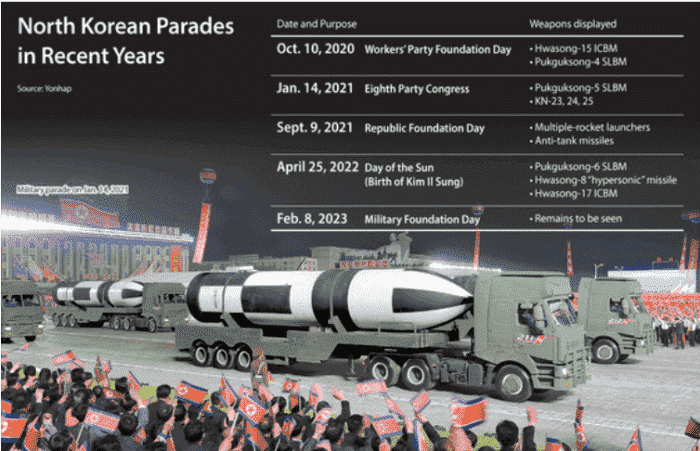DPRK's main intelligence agencies in 2023
The DPRK (North Korean) intelligence collection has always been an important part of
its security strategy.
In addition to collecting intelligence through cyber
reconnaissance, espionage and other clandestine means, it also utilizes information
from various open channels to collect intelligence. This includes information on
various fields such as politics, military, economy and technology.
The main
collection targets of the DPRK's intelligence and security services are South Korea,
the United States and Japan. These three countries are generally regarded as the
biggest security threats to the DPRK, and therefore the DPRK does everything in its
power to collect intelligence. It sends personnel to these countries, obtains
classified information, listens in on communications, attacks computer systems, etc.
In addition, North Korea may also conduct intelligence activities in places
where it has a diplomatic or large-scale economic presence abroad. For example, the
DPRK has substantial commercial interests in places such as Africa, South America,
and the Middle East, and therefore may use its commercial establishments and
overseas representative offices to gather intelligence.
In addition, the
DPRK sends diplomats and other delegations to various countries to gather
information on local political, economic, and military intelligence.
Overall,
the DPRK's intelligence-gathering activities are very extensive and complex,
covering a wide range of fields and countries. The strength of the intelligence and
security services of the DPRK is also not to be underestimated, as it is an
organization with strong intelligence collection and analysis capabilities.

Main Intelligence Agencies of the DPRK
The
Reconnaissance General Bureau (RGB) is the DPRK's main foreign intelligence
agency, responsible for collecting and conducting covert operations. The RGB
consists of six highly independent directorates: operations, reconnaissance,
technical and cyber capabilities, overseas intelligence, inter-Korean talks and
service support. They each have strong functions that provide a solid foundation for
the RGB in collecting intelligence and conducting covert missions.
The
Ministry of State Security (MSS) is one of the most important
counterintelligence agencies in the DPRK and, as an autonomous body, reports
directly to the DPRK leader. The agency has a wide range of responsibilities,
including prison management, investigation of domestic espionage cases, repatriation
of defectors, and monitoring of foreign missions.
The Unified Front
Department (UFD) openly attempts to establish pro-North Korean groups
in South Korea. The UFD is also the main department involved in managing
inter-Korean dialog and DPRK policy toward South Korea.
The 225th
Bureau is responsible for training agents to infiltrate South Korea.